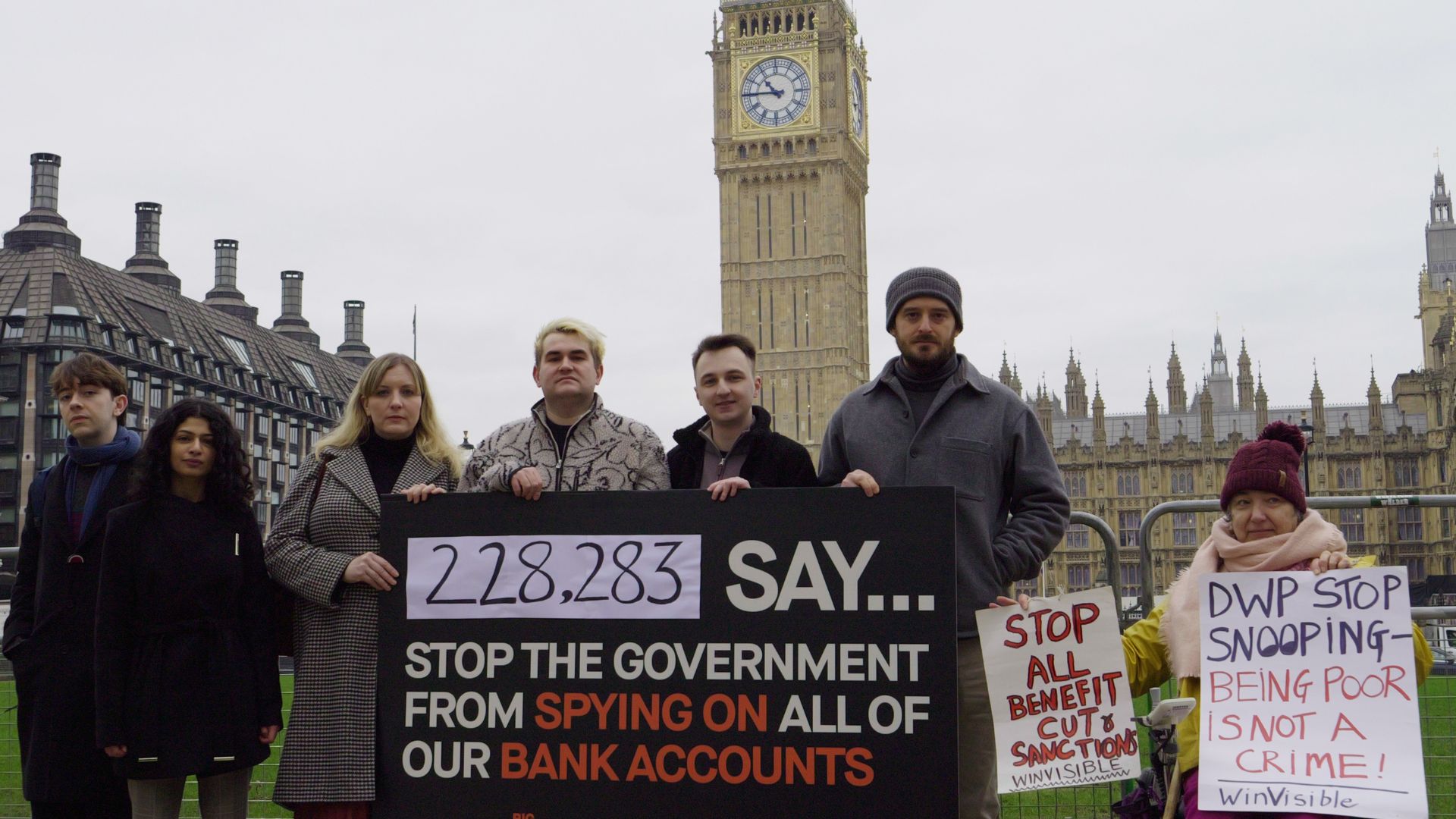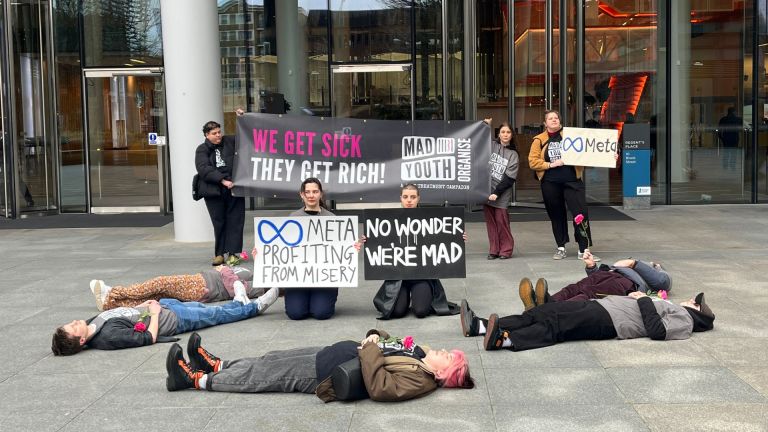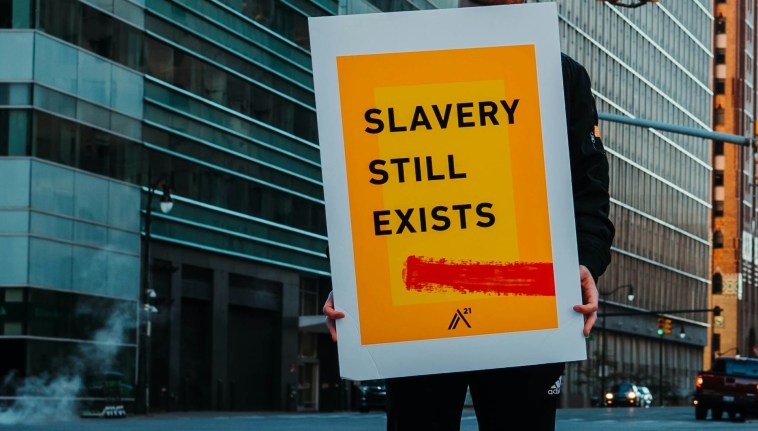Kendall claimed that this would be “backed up by new and important safeguards” to ensure the DWP’s powers are “used proportionately and safely”.
The bill is expected to save the DWP £1.5bn over the next five years, and it forms part of a wider government crackdown on fraud and error which is expected to save a total of £8.6bn in that time.
But Big Brother Watch, a privacy campaigning group, criticised the bill for reportedly allowing the DWP to compel banks to scan benefit recipients’ bank accounts, describing the move as an “unprecedented assault on privacy”.
“The bill completely inverts the presumption of innocence, turning every customer into a suspect until their bank confirms otherwise,” Jasleen Chaggar, legal and policy officer for Big Brother Watch, told the Big Issue.
“Given that the DWP already has expansive powers to investigate those suspected of welfare fraud, these sweeping powers amount to no more than a cynical attack on welfare recipients. These measures are not seriously about the recovery of lost funds, but about a misplaced attempt to build a surveillance infrastructure.”
Chaggar added that “it is those most in need of benefits who will be more deeply harmed by the bill’s most punitive aspects”, and that the bill represents a “blow to our privacy rights”.
“The targets are those who are already struggling on the poverty line, as well as those who are disabled, sick and elderly,” she said. “The repercussions of wrongful investigations could have life-altering consequences, including burdensome appeals and the suspension of benefits.”
‘Disproportionate focus’ on benefit fraud fuels stigma
This latest announcement comes after a series of government proposals around cracking down on fraud in the welfare system as well as slashing the welfare budget, with Keir Starmer saying his government “will be ruthless with cuts if that’s what’s necessary”.
Shelley Hopkinson, head of policy and influencing at poverty charity Turn2us, explained that a “disproportionate focus” on benefit fraud risks “fuelling fear, not fairness”.
“While fraud should be tackled, a disproportionate focus on it deepens stigma, deters people from claiming support, and adds more complexity to an already overwhelming system,” Hopkinson told the Big Issue.
“We hear from people every day who are afraid to apply for benefits in case they make a mistake and end up in debt – or worse, are wrongly accused of fraud. We need a system built on trust, that supports rather than suspects and provides security and dignity to everyone who needs it.”
Benefit overpayments are not only made due to fraud but also because of error – either by the claimant or the government itself. In addition, mistakes can be made in accusing benefit claimants of debt. DWP errors reportedly cost the country £800m in the financial year ending 2024.
The DWP already has the power to get this money back from benefit claimants, which can be “devastating” for people who are already struggling to afford their essentials.
As the Big Issue has reported, a disabled woman had her disability benefits stopped and was accused of owing the government £28,000 in benefits overpayments – which the DWP admitted was a mistake when the Big Issue got in touch.
Meanwhile, a single mother was accused of a £12,000 debt, when the DWP actually owed her money.
Do you have a story to tell or opinions to share about this? Get in touch and tell us more. Big Issue exists to give homeless and marginalised people the opportunity to earn an income. To support our work buy a copy of the magazine or get the app from the App Store or Google Play.
Big Issue is demanding an end to extreme poverty. Will you ask your MP to join us?









